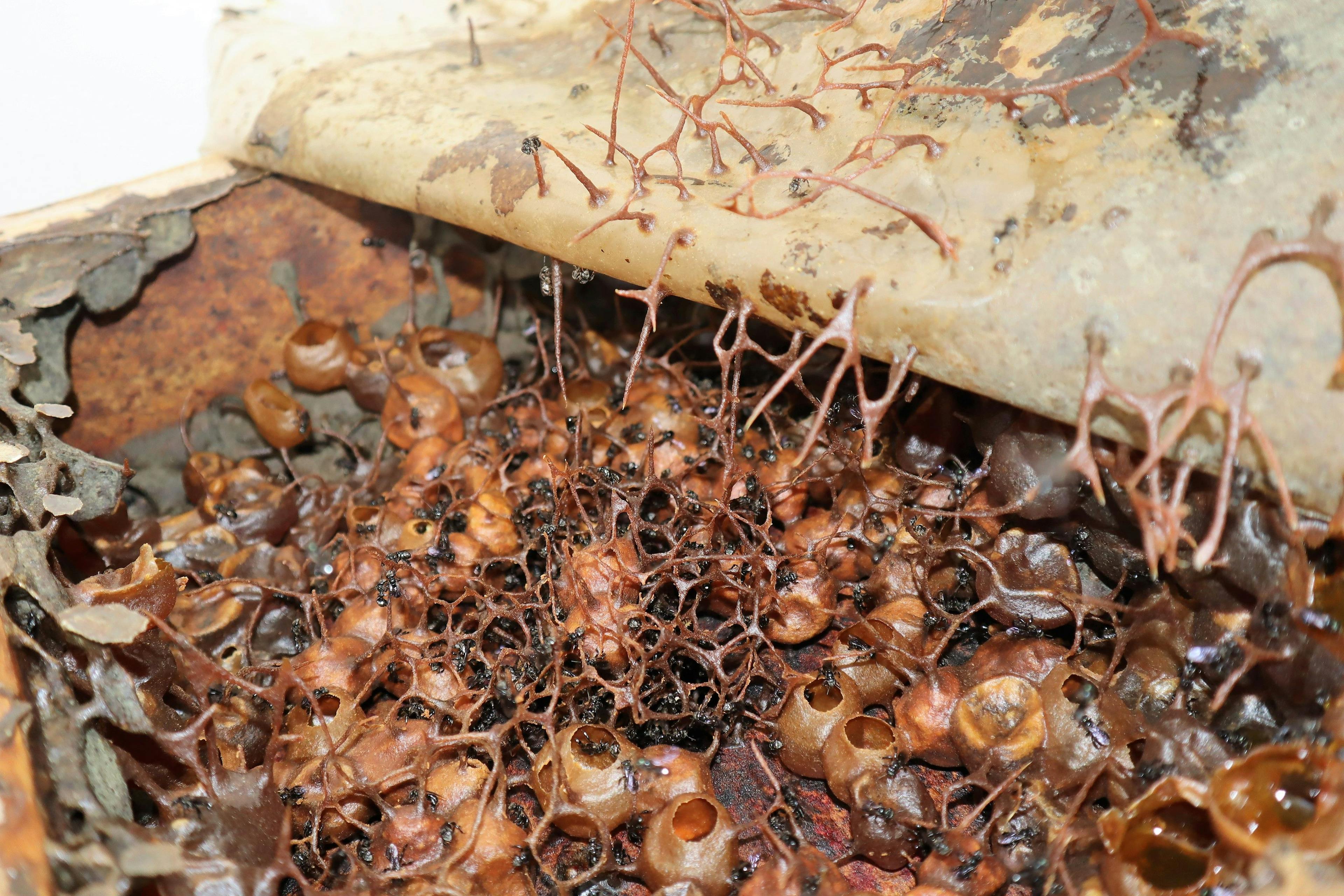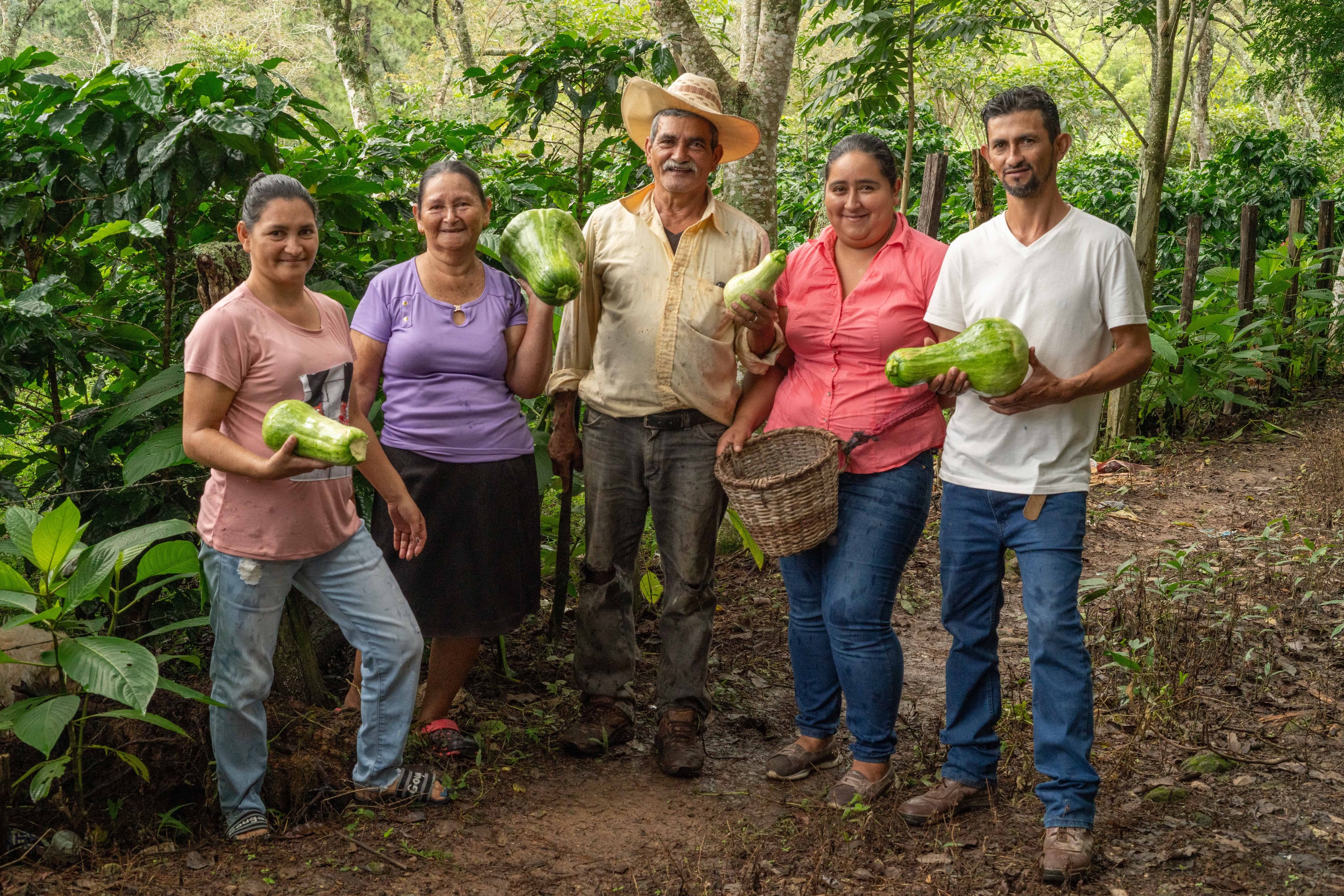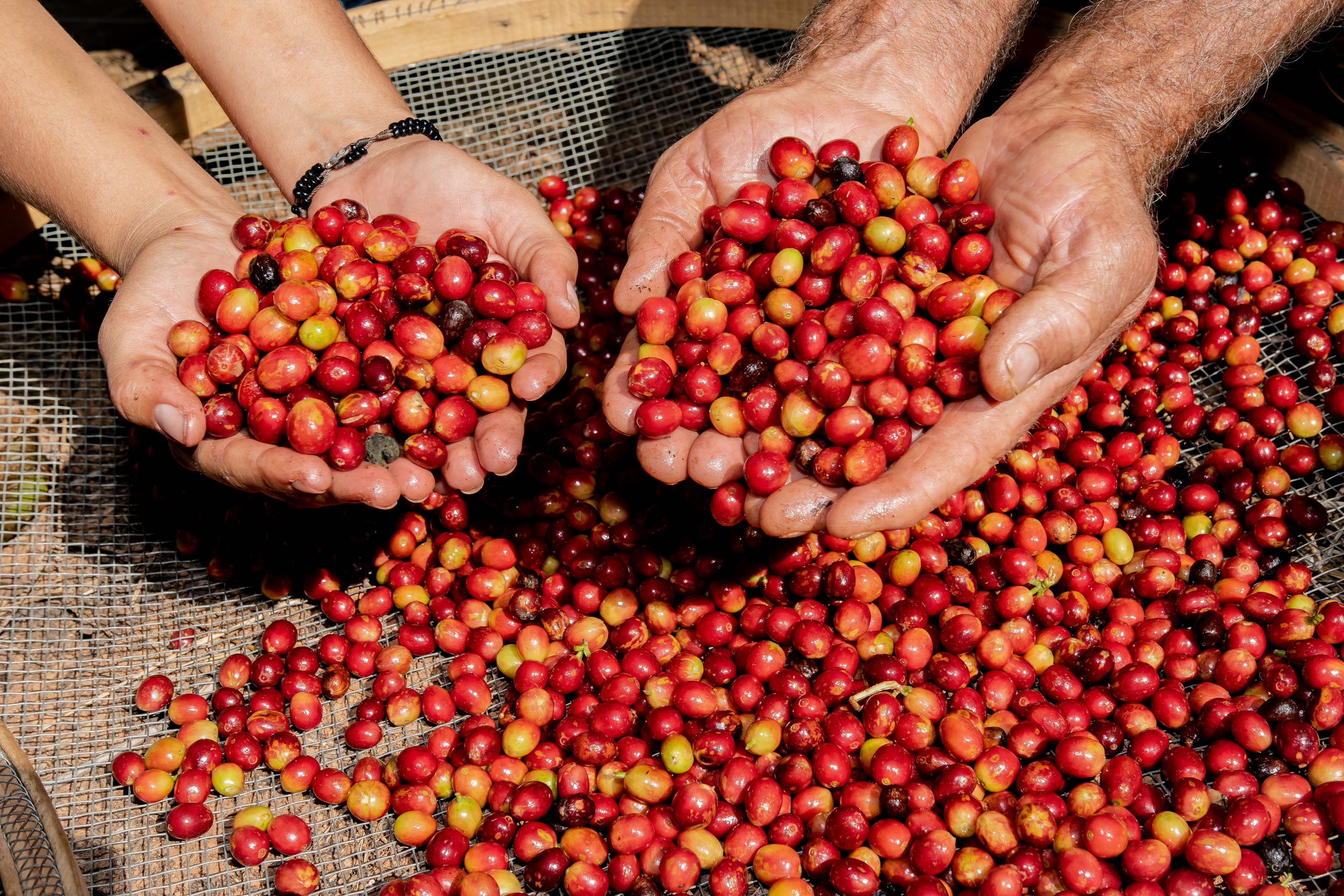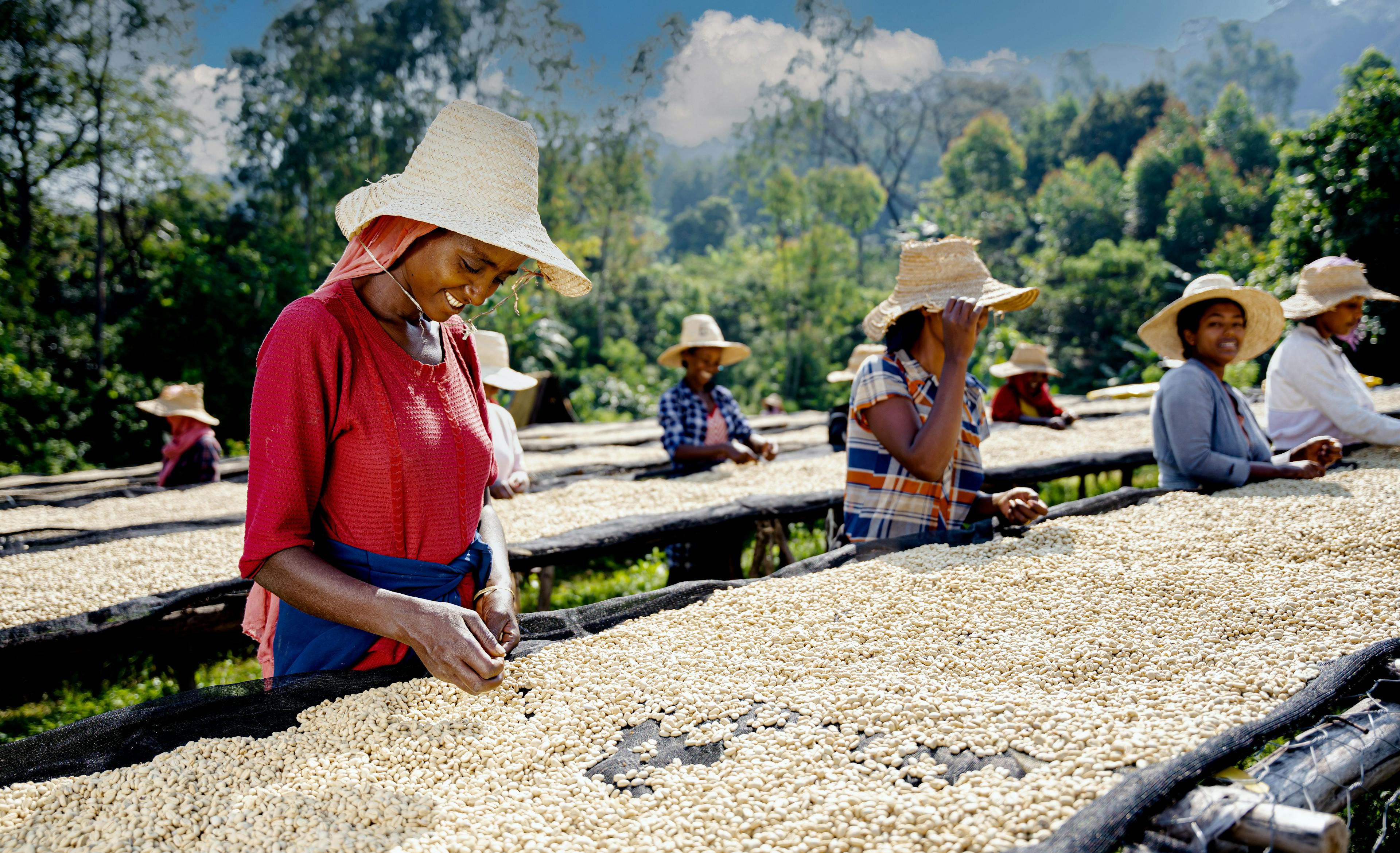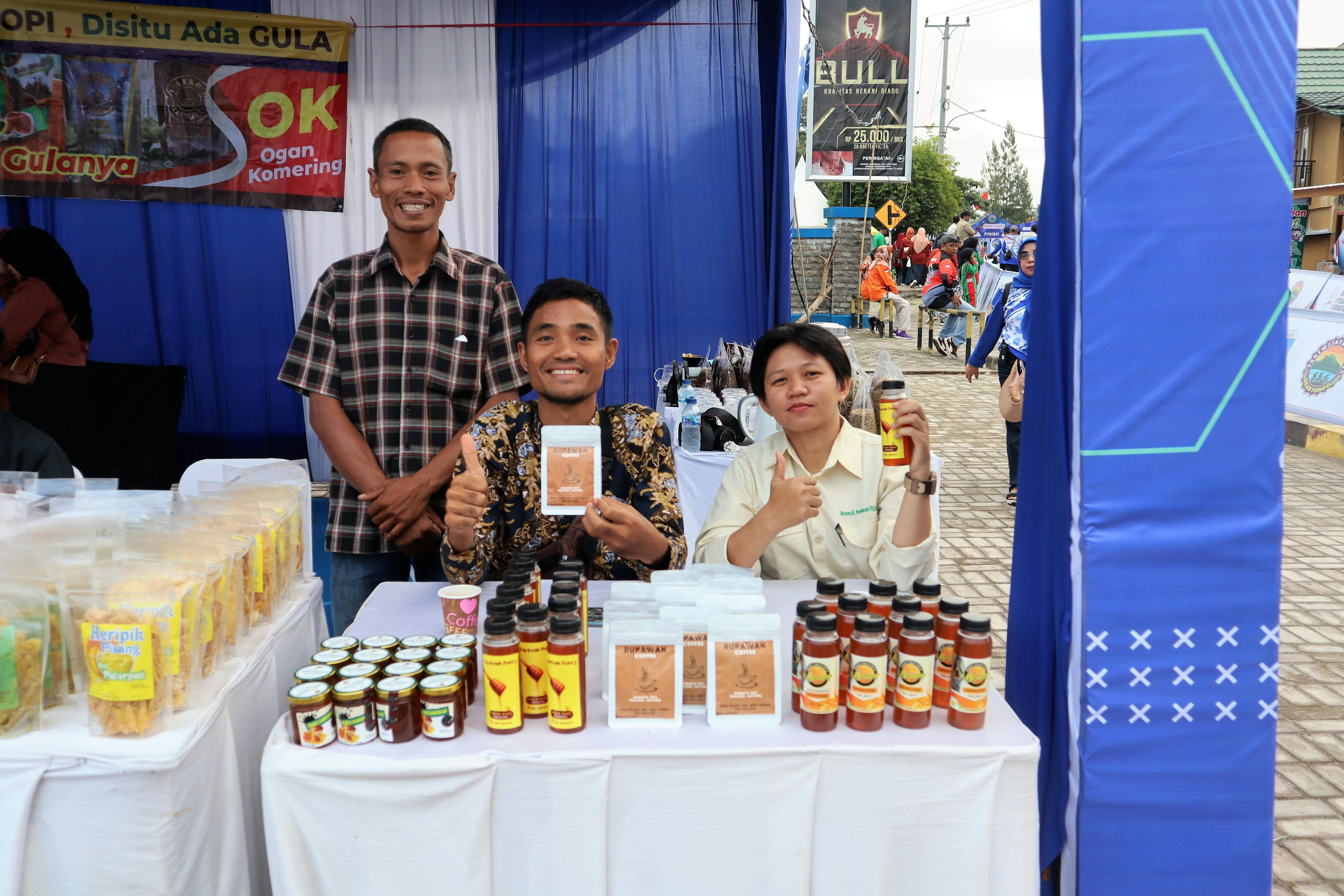
With Resourcefulness To Resources: A Better Income for Coffee Farming Families in Indonesia
There are numerous paths for coffee farming families to achieve a more substantial income. Often these paths include a combination of resourcefulness and creativity: Resourcefulness involves seeking innovative solutions and maximizing the potential of their immediate surrounding, while creativity means the ability to establish fresh income streams.
Coffee is of course a major income source for smallholder families participating in ICP projects. However, farmers who opt to diversify their income become more independent from their coffee-generated earnings. This diversification enhances their resilience against the inherent volatility of the market and improves their financial stability. Depending on the type of business, it can provide an additional source of nutritious and healthy food. In South Sumatra, for instance, smallholder farmers manage up to seven hectares of farmland. That allows them to diversify their farms by incorporating various short and mid-term crops apart in addition to coffee.
Buzzing Business: Cultivating Trigona Bees for Honey Production
Trigona bees are causing quite a buzz: Many Indonesian farmers are showing interest in cultivating the petite stingless forest bees for honey production. These remarkable creatures live in wax nests, simplifying the process of harvesting honey.
The allure of honey production and marketing extends to all – women, men, and youth alike. Honey is sold in local markets in Jakarta and Java, at a price of IDR 50,000 (EUR 3) for a 100 ml bottle and IDR 100.000 (EUR 6) for a 250 ml bottle.
Beyond serving as an additional income source, cultivating Trigona bees nurtures biodiversity and pollination, thereby enhancing the productivity of coffee plants and other crops. These bees play a key role not only in agroforestry but also in organic farming practices, given their sensitivity to chemicals. Consequently, the system must remain free from pesticides.
Mushrooming Earnings from Coffee Husk
Transforming waste into wealth can be surprisingly simple. Take coffee waste, for instance - it serves as an ideal substrate for cultivating oyster mushrooms. Coffee husks, a by-product of coffee processing, are mixed with rice bran, cornflour, and dolomite. Once mixed, they are carefully packed into bags. Through a meticulous process of sterilization and inoculation – the mushroom’s equivalent of “roots” - these bags are maintained in a dark and humid environment.
After around four weeks, the oyster mushrooms are ready for harvesting. Remarkably, it’s often women smallholders who undertake the task of processing this protein-rich delicacy. They expertly coat the mushrooms in batter, frying them to perfection before presenting them for sale in local markets. In doing so, this dynamic endeavor not only supplements their income from coffee farming but also contributes to women's empowerment and gender equality.
The benefits of oyster mushroom cultivation extend further. The remaining coffee husks, now decomposed by the mycelium, serve as nutrient-rich compost for the family’s farm coffee and vegetable gardens. This is what we call a circular economy at its best!
Sipping Into Success With Palm Sugar Sap Water Drink
Palm Sugar Sap Water is a refreshing drink made from the nectar of palm tree flower. The journey to this delectable drink begins with the skillful harvest of these flowers, a task predominantly entrusted to youth who possess the strength to climb up the lofty palm trees. Once harvested, the palm sap water that is extracted from the flowers is boiled up to 100 Celsius degrees for 1-2 minutes, transforming it into the cherished source of sweetness.
Interestingly, the trajectory of palm sugar follows an extended processing route, leading to elevated market prices. Positioned as a refined product, palm sugar commands even greater value.
The selling price is IDR 10,000 (EUR 0.60) per 250 ml bottle. The majority of production is spearheaded by women and youth.
Turning Passion into Profit: A Sip of Success with Fruit Juice
Passion fruit trees were cut before, now farming families make passion fruit juice from their fruits. This combines well with the agroforestry that is being practiced more and more by the farmers in ICP's project in Indonesia.
The production process is remarkably straightforward: A harmonious blend of fruit pulp, water, and a touch of simple syrup is added to a blender or food processor. A series of brief pulses lasting 1-2 seconds each suffices to achieve the desired consistency. The selling price is IDR 10,000 (EUR 0.60) per 250 ml bottle. Most are produced by women.
Leap to Prosperity with Agroforestry
Agroforestry and integrating shade trees give farmers the opportunity to cross two hurdles with one leap. For one, higher trees between the coffee plants protect these from too much sun. For another, if wisely chosen, they can serve as an additional source of food and income. Farmers in Indonesia are more and more integrating traditional fruit trees such as Durian and Duku. Jengkol (dogfruit), avocado, pepper, Java chili, ginger, turmeric, and red chili are popular candidates as well. There's also a big potential in ginseng and vanilla not only in growing but also in processing them for the market.
The potential for resourcefulness and creating resources has obviously not yet been exhausted.
